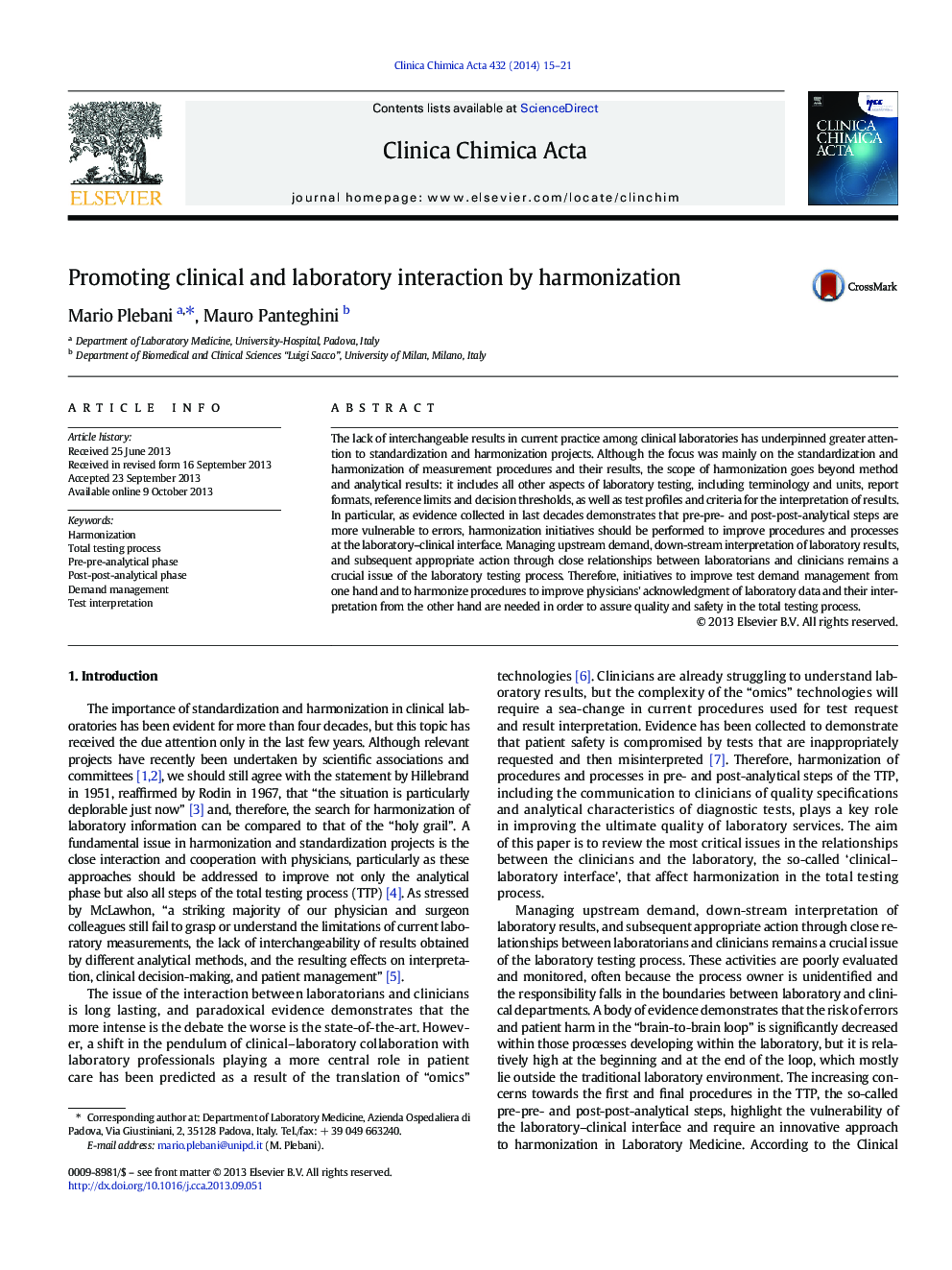| Article ID | Journal | Published Year | Pages | File Type |
|---|---|---|---|---|
| 1965412 | Clinica Chimica Acta | 2014 | 7 Pages |
Abstract
The lack of interchangeable results in current practice among clinical laboratories has underpinned greater attention to standardization and harmonization projects. Although the focus was mainly on the standardization and harmonization of measurement procedures and their results, the scope of harmonization goes beyond method and analytical results: it includes all other aspects of laboratory testing, including terminology and units, report formats, reference limits and decision thresholds, as well as test profiles and criteria for the interpretation of results. In particular, as evidence collected in last decades demonstrates that pre-pre- and post-post-analytical steps are more vulnerable to errors, harmonization initiatives should be performed to improve procedures and processes at the laboratory-clinical interface. Managing upstream demand, down-stream interpretation of laboratory results, and subsequent appropriate action through close relationships between laboratorians and clinicians remains a crucial issue of the laboratory testing process. Therefore, initiatives to improve test demand management from one hand and to harmonize procedures to improve physicians' acknowledgment of laboratory data and their interpretation from the other hand are needed in order to assure quality and safety in the total testing process.
Related Topics
Life Sciences
Biochemistry, Genetics and Molecular Biology
Biochemistry
Authors
Mario Plebani, Mauro Panteghini,
